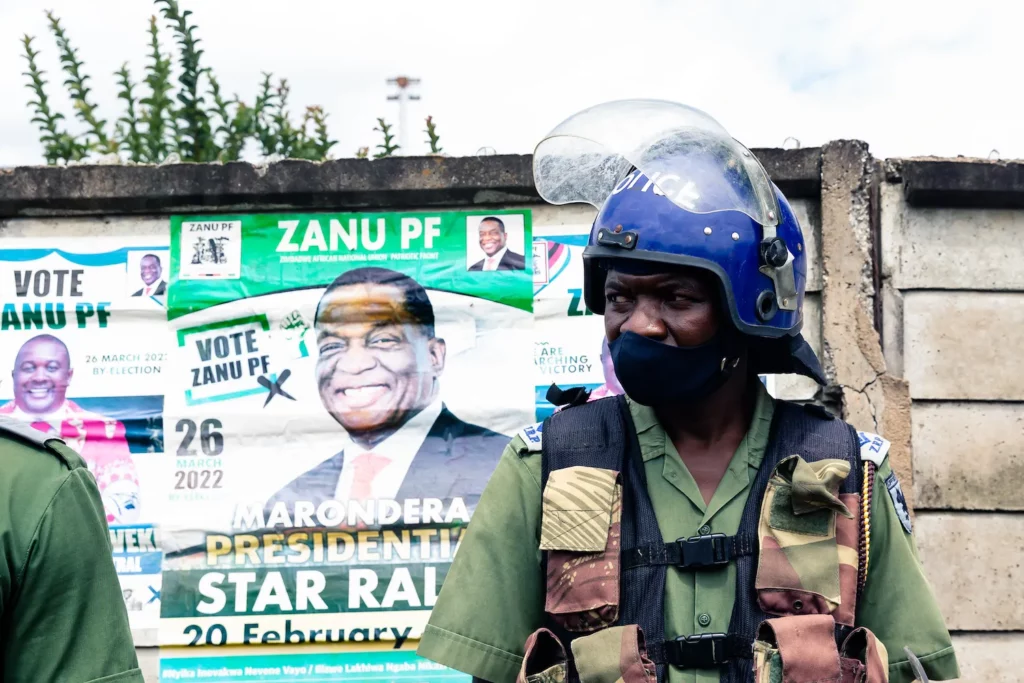
As a national election approaches in Zimbabwe, citizens gathered in prayer on Sunday, expressing their hopes for peace amidst a backdrop of anticipated tension as the upcoming election is overshadowed by concerns of a crackdown on dissent and potential vote rigging.
A group of worshipers assembled for a mass at a cream-colored church located on a dusty street flanked by market stalls in Mbare, Harare’s oldest township.
“We are praying for a peaceful environment,” stated Pastor Edson Mukaro of the Apostolic Faith Mission, a sturdy man adorned in a red tie and a gray waistcoat.
“We are just encouraging our people to be objective, peaceful, and to do everything in order.”
Zimbabwe has a lengthy record of contested elections tainted by unrest, and there are concerns of a recurrence of 2018, when the military fired upon opposition demonstrators, resulting in the deaths of six individuals.
Politics and religion frequently intersect in the southern African nation, where evangelical and apostolic churches hold significant influence, and certain religious leaders have previously aligned with the ruling ZANU-PF party, which has been in control since the country’s independence in 1980.
Nelson Chamisa, the 45-year-old primary contender against President Emmerson Mnangagwa, is an apostolic pastor, although his church affiliation is distinct from that of Mukaro’s.
The “Gospel Fire Cathedral,” adorned with yellow and glass window panes and a wooden ceiling, solely focuses on spiritual affairs, not political ones, according to Mukaro.
“We are non-partisan,” he says.
Chamisa’s Citizens Coalition for Change typically holds more influence in urban areas, while Mbare traditionally tends to support ZANU-PF.
According to some locals, merchants aspiring to establish businesses in its bustling market are required to align themselves with the ruling party.
Within the church, a choir composed of men and women wearing blue dresses adorned with a red flower on their chest performs spiritual hymns from the altar.
Towards the rear, a toddler donning blue jeans enthusiastically jumps and applauds to the gospel music’s rhythm, while a young mother with her baby securely fastened to her back participates in the prayers.
“We will not rest until poverty stops,” the pastor chants passionately, as a young man intensifies the rhythm on the drums, propelling the preaching tempo, and banknotes cascade from the pockets of the faithful into gray plastic donation baskets.
In 2022, official statistics indicated that over 40 percent of Zimbabweans were in a state of extreme destitution. Finding decent employment remains a significant challenge.
“We need more employment, that’s what we need, employment,” says Anna Mukudo, a churchgoer and local vendor wearing a bright red and yellow dress.
She envisions that the upcoming election will usher in positive transformation and progress.
“I don’t know who is going to win the elections, but God knows,” she says.
